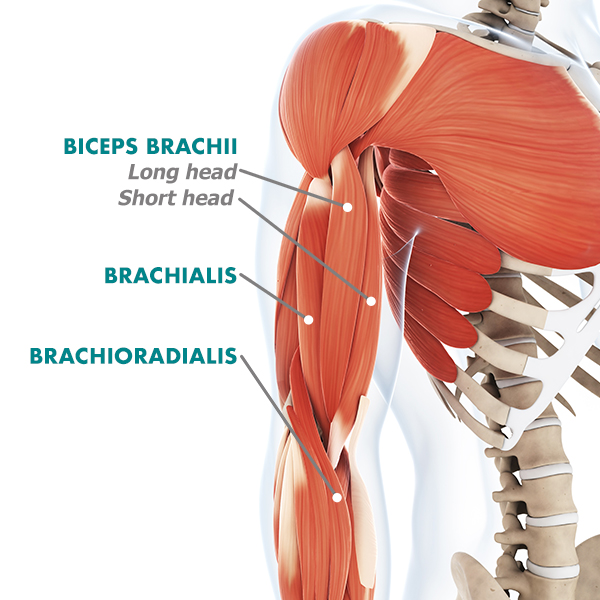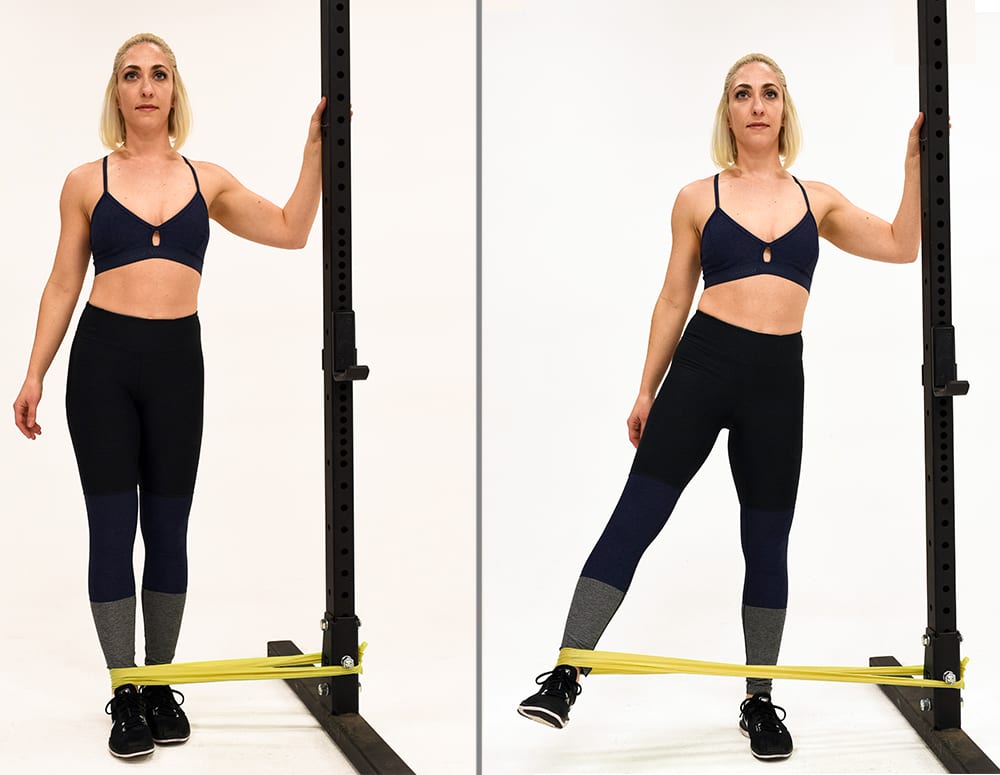To the neophyte, energy coaching is easy: choose up a weight, put it down, get robust.
Spend just a few weeks or months on the web or chatting up your new fit-buddies, and also you come to understand there’s a complete lot of science, artwork, and jargon behind the obvious simplicity: compound workout routines; plyometrics; supination; RPE; 1RM; ATG.
That can assist you work out what the fitness center bros and health nerds are yapping about, we’ve put collectively a cheat-sheet of weightlifting phrases that breaks all of it down for you.
So subsequent time somebody recommends that you just “Attempt to PR on the ultimate pyramid set of your compound actions the ultimate mesocycle earlier than deload,” you’ll know what they’re speaking about.
FORM/MOVEMENT
Ass to grass

A motion carried out in squat variations whereby the knees and hips flex absolutely, and the glutes are shut as potential to the ground. Typically abbreviated as ATG.
Compound motion
An train that includes important motion of two or extra main joints. Examples embrace squats, lunges, deadlifts, pull-ups, and presses of all types.
Concentric motion
A kind of muscle contraction during which a working muscle goes from a lengthened to a shortened place. In energy coaching, it’s the a part of the transfer at which the load (or your body weight) strikes upward, as within the ‘pushing’ portion of an overhead press.
Eccentric motion
A kind of muscle contraction during which a working muscle goes from a shortened to a lengthened place. In energy coaching, it’s the a part of the transfer at which the load (or your body weight) strikes downward, as within the ‘reducing’ portion of an overhead press.
Flexion
A motion during which a joint goes from an open to a closed or bent place, as in a biceps curl or sit-up.
Extension
A motion during which a joint goes from a closed to an open or lengthened place, as in a triceps extension or a deadlift.
Useful motion
A motion, train, or drill that resembles, or helps to enhance, actions commonly encountered in on a regular basis life. As an illustration, carrying groceries or hoisting baggage into an overhead bin.
Grip energy

The capability to understand, maintain, pinch, carry, and grasp from objects of varied shapes, sizes, and weights utilizing primarily the energy of your fingers and fingers.
Grip energy is a part of many various fitness center actions, together with farmer’s carries, rows, deadlifts, pull-downs, pull-ups, and, to a lesser extent, presses, and is taken into account an indicator of normal well being and a dependable predictor of longevity.
Hip hinge
A motion during which each hip joints flex (bend) whereas the backbone stays braced and inflexible. A Romanian deadlift is an instance, as is the set-up place for the standing row.
Isolation actions
Workouts that contain important motion of only one main joint. Examples embrace lateral raises, triceps extensions, and biceps curls.
Isometric train
An train that locations rigidity on a number of muscle teams, however requires minimal motion at any main joint. Examples embrace the wall sit and the plank.
Lengthening
The act of extending, enjoyable, or releasing a muscle or muscle group. Within the ahead bend stretch, for instance, the hamstring muscle group on the backs of the thighs lengthens as you fold ahead.
Shortening
The act of tensing or contracting a muscle or muscle group. Within the curl train, for instance, the biceps muscle groups of the higher arms shorten as you increase the load.
Lifting to failure
Performing an train till you’re unable to finish one other repetition.
Technical failure refers to performing an train till you’re unable to finish one other full repetition with good type.
Absolute failure refers to performing the train till you possibly can not transfer the load in any respect, and normally includes performing a number of partial repetitions — generally with the assistance of a coaching companion — till your muscle groups are fully exhausted.
Supination

The act of turning your hand or foot upward or outward in order that the palm or sole is pointing up. In a dumbbell curl, supinating your hand as you increase the load leads to larger rigidity in your biceps muscle groups.
The time period additionally applies to the entire physique, when an train is carried out on one’s again (supine).
Pronation
The act of turning your hand or foot downward or inward in order that the palm or sole is pointing down. The time period additionally applies to the entire physique, when an train is carried out on one’s abdomen or going through down (susceptible).
Time underneath rigidity (TUT)
The time taken to finish all phases of a strength-training train, generally expressed as a four-digit quantity, with every digit referring to the time taken to finish a particular portion of the motion.
So a pushup with a 4210 tempo can be a set of pushups during which you’re taking 4 seconds to decrease your self in the direction of the ground; two seconds holding the “down” place; one second to push your self again up, and nil seconds — no time — within the “up” place. Every rep of the pushup would give your chest, shoulders, and triceps seven whole seconds underneath rigidity.
WORKOUT DESIGN
Lively restoration

Gentle, straightforward motion carried out on non-exercise days — or between or after coaching periods on exercise days — meant to stimulate circulation, relieve soreness, and improve restoration. Examples embrace foam rolling, straightforward swimming, strolling, stretching, dynamic warmups, and yoga.
Bulking
A coaching block targeted on constructing muscle mass, normally involving heavy, compound workout routines, additional protein and energy, and a concentrate on relaxation exterior the fitness center.
Calisthenics
Repetitive workout routines involving body weight solely. Examples embrace push-ups, squats, leaping jacks, and sit-ups.
Chopping
A coaching block targeted on dropping fats, normally involving diminished energy, continued concentrate on protein consumption and energy coaching, and an emphasis on further low-intensity train exterior the fitness center.
Deloading
A brief interval — normally per week — of diminished quantity and depth in a strength-training program, normally following per week or extra of high-intensity and high-volume coaching.
Density coaching
A coaching model targeted on finishing as many reps, units, and/or workout routines as potential in a given time period. Instance: performing as many rounds as potential of 10 reps every of push-ups and squats in 10 minutes.
Drop set
A set of a energy coaching train carried out instantly after a number of medium to heavy units during which you drastically scale back the load used with a purpose to additional exhaust a muscle.
Dynamic stretching/warmup

Gentle warmup strikes, carried out with body weight solely, to extend core temperature, loosen joints, improve circulation, and scale back damage. Examples embrace excessive kicks, leaping jacks, and strolling lunges.
Full-body coaching
A coaching block or program during which you’re employed all the key muscle groups of the physique in every exercise.
Muscular endurance
The capability of a muscle to contract repeatedly underneath rigidity earlier than fatiguing.
One-rep max
The quantity of weight you’re able to lifting, for a single repetition at maximal depth, in a given strength-training train.
Overtraining
In energy coaching (versus endurance coaching), figuring out at a degree of quantity and/or depth from which you’re unable to recuperate from one exercise to the following.
Signs embrace elevated resting coronary heart charge, diminished coronary heart charge variability, lack of motivation, and hampered progress.
Periodization
An strategy to coaching which focuses on totally different objectives — energy, energy, endurance, restoration — in coaching blocks lasting 4 to 12 weeks, all through the coaching yr.
An instance is the Tremendous Blocks idea, during which you’re employed out in three-week blocks, every targeted on a specific facet of health, separated by one-week deloads (see above).
Energy
The capability to specific energy shortly. A 100-meter dash or a protracted leap are assessments of energy. In physics, energy is expressed as pressure x acceleration, so the stronger you’re and the sooner you progress the extra highly effective you’re.
Plyometrics

Jumps, throws, and calisthenics strikes designed to develop athletic explosiveness and energy, and improve energy.
PR (Private file)
A person’s efficiency in a raise or different train that represents their greatest effort to this point. Examples in energy coaching may embrace performing extra pull-ups in a row than you’ve ever executed with out dropping from the bar, or lifting extra weight for a single repetition than you ever have in a deadlift.
Progressive overload
Systematically growing the reps, weight, and/or quantity of a energy coaching program over time with a purpose to enhance energy, muscle mass, endurance, and different elements of health.
Pyramiding
A energy coaching technique during which the load will increase incrementally in an train over a number of units whereas repetitions inversely lower, usually culminating in a single all-out set of 5 or fewer reps.
Reps
A single cycle of a strength-training motion, together with — if relevant — reducing, lifting, and/or isometric holds.
Units
A rep or group of reps of an train carried out in succession to extend some facet of health. Often expressed together with the rep depend of the train, as in, “Three units of 10 reps,” or, merely, “3 x 10.”
Break up coaching
Versus full-body coaching (see above) a cut up program focuses on totally different muscle teams or actions on totally different days of the week, or days inside a cycle of exercises.
Some examples embrace “push-pull” during which the lifter performs actions that contain pushing workout routines on some days, and pulling workout routines on others; “upper-lower,” during which the lifter works higher physique some days and decrease on others, and “physique half splits,” during which the lifter works only one or two particular person muscle teams — say, arms or again or legs — every exercise.
Energy

The flexibility to exert pressure to beat resistance. In physics, energy is expressed as pressure x distance — so the extra pressure you possibly can exert, and farther you progress the resistance, the stronger you’re.
Tremendous setting
Alternating units of at the very least two workout routines, again to again, normally to save lots of time, or to extend the workload on a given muscle group.
Undulating periodization
A variation of the usual periodization (see above) mannequin during which you differ the main target of the exercises inside the identical coaching block with a purpose to scale back stress, and create a stimulus for broader adaptation.
So, as an alternative of specializing in endurance for 4 weeks, hypertrophy for 4 weeks, and energy for 4 weeks, you may carry out two endurance exercises, two hypertrophy exercises, and two energy exercises every week for a six- or eight-week interval.
Quantity
The overall quantity of labor carried out in a given exercise, week, or coaching block. Typically expressed as “weight lifted x units x reps,” however usually quick handed as “variety of working units.”
METABOLISM/ENERGY/NUTRITION
Amino acids

The constructing blocks of dietary protein, which type the uncooked supplies for muscle- and tissue-building inside the physique.
Anaerobic vs. cardio
In biology, cardio reactions are people who require oxygen, and anaerobic ones don’t. So, many trainers and exercisers discuss with endurance actions (working, swimming, biking, and so on.) as cardio, and energy and energy actions (energy coaching, sprinting) as anaerobic.
In fact, few if any bodily actions are purely one or the opposite; most actions lie on a spectrum someplace between the 2 extremes.
ATP (Adenosine triphosphate)
The first gas that powers organic exercise within the physique. Power in meals (carbohydrate, fats) is transformed by metabolism into this power to carry out work.
Broscience
Scientifically unproven coaching and dietary recommendation, usually delivered by individuals with few if any respectable credentials, in particular person or on social media.
EPOC (Extra post-exercise oxygen consumption)
The tendency for the physique to proceed burning power above your baseline metabolic charge after the conclusion of a exercise.
EPOC is considerably increased after high-intensity actions like sprints and circuit coaching than lower-intensity ones, however, opposite to some older analysis, not a serious contributor to caloric burn or fats loss.
Hypertrophy
Lactate
An often-misunderstood and mischaracterized gas supply for muscle contraction, produced and burned throughout extended high-intensity energy or endurance coaching.
RPE (Price of perceived exertion)
A subjective scale, expressed as a quantity from six to twenty or one to 10, of how onerous an individual is working relative to their maximal capability.
ANATOMY
Biceps

The muscle groups on the fronts of the higher arm, liable for flexing (bending) the elbow.
Glutes (gluteals)
The “butt muscle groups” on the backs of the hip joints liable for extending the hips.
Lats (latissimus dorsi)
The thick muscle groups on the perimeters of the torso liable for drawing the arms again and down, and serving to to increase the decrease again.
Pecs (pectorals)
The chest muscle groups, liable for drawing your higher arms in the direction of, and previous, your middle line.
Quads (quadriceps)
The muscle groups on the fronts of your thighs, liable for extending your knee joint.
Traps (trapezius)
The kite-shaped muscle in your higher again, liable for drawing your shoulder blades upwards, backwards, and downwards.
Triceps
The muscle groups on the backs of your higher arms, liable for extending (straightening) your elbows.
Abduction

The act of shifting an arm or leg away from the middle line of the physique.
Adduction
The act of shifting an arm or leg towards the middle line of the physique.
Anabolism
All metabolic actions that contain progress, or the assembling of smaller organic elements into bigger ones. Muscle progress, which includes the development of recent muscle tissue from amino acids, is one instance.
Atrophy
Muscle loss or breakdown.
Physique composition
A measurement or the proportion of physique fats in an individual relative to their general physique mass.
Muscle fiber sort
A approach of categorizing the lengthy, parallel, hair-like fibers that comprise muscle tissue. (See additionally quick twitch and gradual twitch).
Recomposition

Altering the relative proportion of physique fats and muscle tissue within the physique, with minimal change in whole physique mass.
Catabolism
Metabolic actions that contain breakdown, or the breaking of bigger organic elements into smaller ones. Fats loss, which includes the breaking of fats tissue into triglyceride gas, is one instance.
DOMS (Delayed onset muscle soreness)
Soreness in muscle groups felt many hours — or generally days — following a tough train session.
Quick twitch
A kind of muscle fiber, also referred to as sort II, that’s giant and light-weight in coloration, and liable for quick, high-effort, high-exertion actions like all-out sprints and heavy lifts.
These are distinguished from slow-twitch, or sort I, fibers, that are slimmer and darker, and liable for slower, decrease effort actions like jogging and lighter, sooner lifts.
Midline
An imaginary middle line that bisects the physique vertically.
Thoughts-muscle connection
The psychological consciousness of the motion of your muscle groups as they lengthen and contract, proven to enhance the effectiveness of a strength-training program.
Muscle imbalance
A distinction within the relative energy of muscle groups on two sides of the physique or two sides of a joint, believed to play a job in posture and susceptibility to damage.
Vary of movement

The course and diploma to which a joint or a sequence of joints transfer — or are able to shifting — in a specific train or stretch.
Sarcopenia
Lack of muscle mass stemming from illness, getting old, or disuse.


